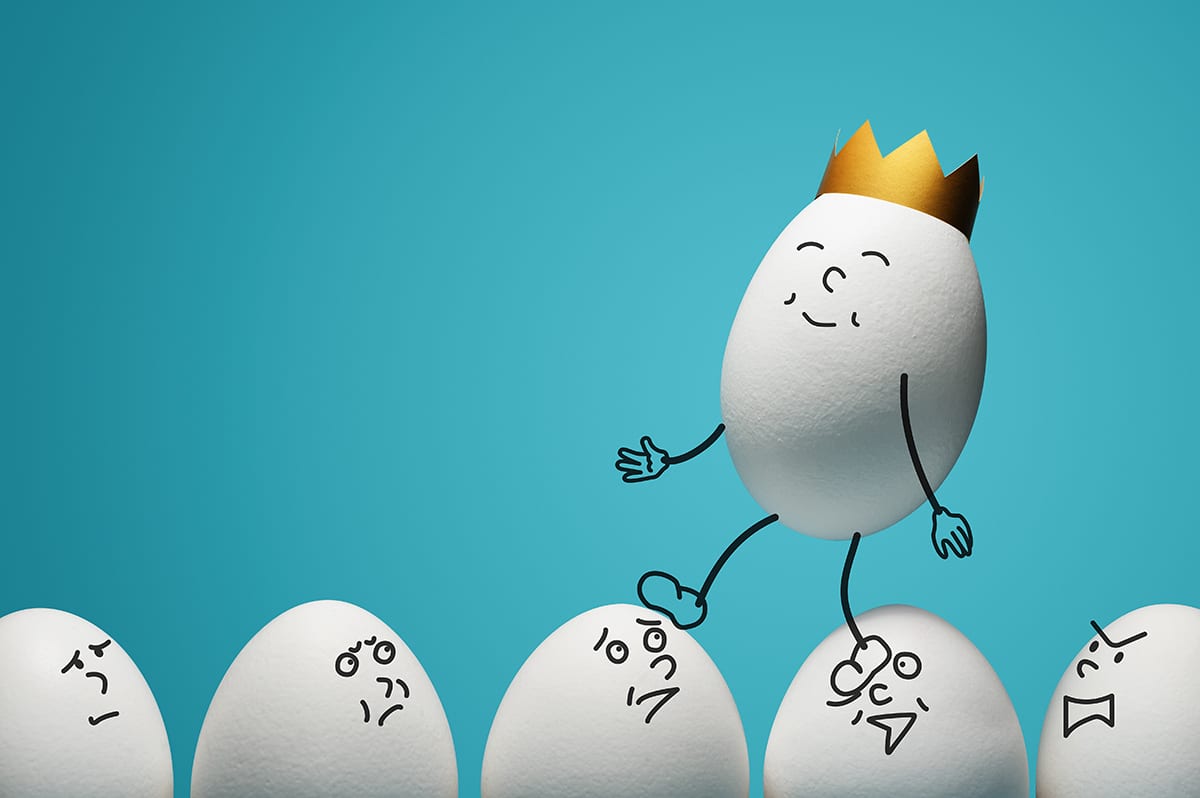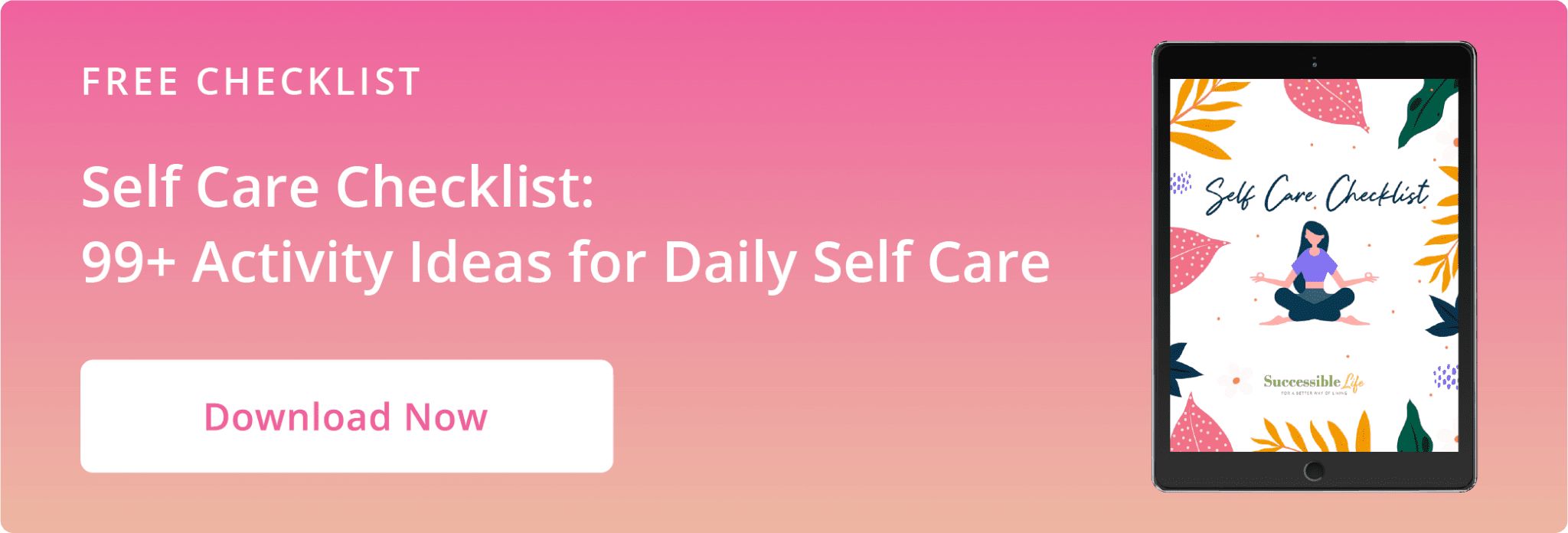Last Updated on May 24, 2024 by Nicole
As summer approaches, we often have the opportunity to look forward to many different beautiful things – warmth, romance, travel and more. With the advent of longer days, many of us shed our winter routines for the outdoors – swapping our winter fashion for summer trends, going to the beach, hanging out in the park or dining al fresco.
Also, advertisements for the perfect beach body or endless physical stamina proliferate around this time. This, sometimes, makes it harder to feel better about yourself.
This is also the time of year when it’s especially easy to spiral down the “compare and despair” rabbit hole. We may find ourselves looking longer at our reflection in the mirror, scrutinizing our bodies and each aspect of our lives.
This ranges from our attractiveness, friends we have, how long our résumés are, how cool our hobbies are or the adventure of our next vacation. However, as we can glean from the quote below by the famous author, spiritual educator and now presidential candidate Marianne Williamson, these very fears may have little to do with adequacy itself. Rather, this battery of ruminations all traces back to one origin: self-esteem.
“Our deepest fear is not that we are inadequate. Our deepest fear is that we are powerful beyond measure. It is our light, not our darkness that most frightens us. […] And as we let our own light shine, we unconsciously give other people permission to do the same. As we are liberated from our own fear, our presence automatically liberates others.”
―Marianne Williamson
Simply put, self-esteem is confidence in one’s worth, regardless of others’ opinions. It is defined by how much value we place on ourselves. If self-esteem were boiled down to one simple question, it would be “am I enough”?
Pitfalls of the Self-Esteem Movement: Unmerited Praise and the Rise of Entitlement
Since the 1970s, researchers, parents, teachers and therapists have honed in on self-esteem as the primary target for how people feel. The hypothesis: boost self-esteem, and one automatically becomes more likable or attractive, has better relationships and performs better in school or at work. But the results did not always amount to the expected benefits.

Looking back some decades ago to the beginning of this social experiment, great emphasis was placed on students feeling good about themselves – a worthy cause if the process includes developing healthy life skills, such as persisting despite failure or increasing one’s Emotional Intelligence (EQ). But the means, even if intentions were good, were not always so noble. In its extreme, teachers were sometimes instructed to shower students with excessive (often unwarranted) praise. Some schools even eliminated honor rolls and merit-based prizes so as not to make other students feel badly about themselves.
This was part of an effort to bolster the self-esteem of the lower achieving students at the expense of the higher achieving students. Publishers jumped on-board the self-esteem movement, greenlighting many of books with the message famously epitomized by Saturday Night Live’s character Stuart Smalley: “I’m good enough, I’m smart enough, and gosh darn it, people like me”.
Missed Mark
To be clear, the target – self-esteem – was right, but the means of enhancing it were wrong. Simply telling people they are great and removing all forms of critique, including constructive criticism, creates inflated egos rather than genuine self-esteem. Non-discriminant praise without regard to character, quality of interpersonal interactions, achievements and adversity doesn’t create self-esteem. It can undermine one’s work ethic and capacity for achievement while creating three gigantic obstacles to healthy self-esteem: entitlement, victim mentality and narcissism.
You develop entitlement when you feel like the world owes you something without your ever having to do anything to earn it. Entitlement often co-exists alongside victim mentality. This faulty belief system has you thinking with certainty that you are owed something by the world. And when you don’t get that big promotion or relationship, you feel like a victim.
You feel robbed of something that was inherently yours. But the humbling truth of existence is that the world doesn’t really owe us anything. Being stuck in entitlement and victim mentality is detrimental to fulfillment precisely because these two states of being are incompatible with gratitude. They play off each other in a self-perpetuating cycle of despair and frustration, which is one of the unanticipated fallouts of the self-esteem movement.
From Narcissus to Today: High Self Esteem Gone Awry

It’s no secret that advancement of our civilization has given modern people a lot to brag about. Paradoxically, however, narcissism is actually the opposite of high self-esteem. The word is rooted in the Greek mythological figure Narcissus, a proud young man who was venerated for his beauty and one day fell in love with his own image, which was reflected in the waters of a spring. Narcissus did not love himself but his reflection.
Similarly, narcissists are actually deeply insecure at the core. Their sense of who they are is very shaky, and they suffer from chronic feelings of inner emptiness. To fill their voids, they need their greatness, or even basic worth, to be reflected back to them through the affirmation, praise and envy of others. In social and professional settings, narcissists may appear charming and be the objects of admiration, but unless you are reflecting their greatness back to them, the narcissist has little use for you and can alienate you quickly with their arrogance, self-centeredness and manipulation.
In contrast, people with healthy self-esteem may appreciate but don’t rely on admiration and praise for their sense of self-worth. They can take risks such as going on a blind date, applying for a promotion or giving their all to undertaking a creative project or athletic goal. These individuals know that although failure may hurt, it won’t destroy them. They give themselves credit for trying, accept their failures and imperfections and learn from every experience along the way.
Challenges to Self-Esteem in the Age of Social Media
Research has shown that the pressures on our self-esteem have increased substantially in the digital age with the rise of social media. These days, social media (especially display-centric platforms like Instagram) can shine a spotlight on weak spots in how we feel about ourselves and make us doubt if we are (or will ever be) “enough”. How many times has seeing a social media post about someone’s size zero waistline, recent award/promotion or latest extravagant holiday in an exotic locale left us long in the face?

In fact, as a Manhattan psychiatrist, I have frequently advised patients to take a break from Facebook, Twitter and Instagram when they are (re)building self-esteem or practicing not comparing themselves to others. It’s hard to do, since the process of self-comparison can feel like an obsession or an addiction. That’s not to say that social media is inherently bad.
However, if we feel ourselves developing obsessions or addictions to social media that adversely affect our self-esteem, there is all the more reason to push oneself outside one’s comfort zone. This could mean a temporary (or even permanent) social media-free existence.
Ready to start your wellness journey? Download our free self care checklist that includes 99+ self care activity ideas.
How to Cultivate Healthy Self-Esteem
So how do we cultivate self-esteem in a culture where it is constantly being challenged? How we do learn to love and accept ourselves fully and completely without falling prey to the dangers of narcissism? How do we recognize entitlement and victim mentality in ourselves and others?
In my experience, the qualities of healthy self-esteem are three-fold:
1. Self-Knowledge

Inscribed on the shrine of Apollo in Delphi is the ancient Greek maxim, Know Thyself. The ancient Greeks recognized the importance of self-knowledge in living a fulfilled life. We cannot value ourselves unless we first know ourselves. To know oneself, we must see ourselves clearly as we really are. This means stepping into authenticity, being completely honest with ourselves and trusting our intuition or inner knowing. Self-knowledge and self-awareness together form the light that illuminates the darkness of living in denial.
Action Step: Knowledge often comes from action. Ask yourself if your daily life comprises of doing things that leave you feeling happy or fulfilled. If not, it may be time to start prioritizing those things you’re passionate about or those that give you a sense of purpose.
2. Self-Acceptance

This second tenet of healthy self-esteem entails embodying the famous affirmation of self-help author, Louise Hay: I am enough. This means knowing and accepting our imperfections, our weaknesses and our foibles. It also means embracing our shadow side. Coined by Swiss psychologist Carl Jung, the “shadow side” refers to parts of ourselves that we believe are unlovable. Inherent in the concept of self-acceptance is being able to forgive ourselves for our failures and pick ourselves back up. Yet self-knowledge and self-acceptance are incomplete without a commitment to third tenet of self-esteem: self-growth.
Action Step: As part of the journey of losing self-hatred, it’s very important to develop self-love (not to be confused with narcissism). This requires making peace with our imperfections. As we open our hearts to ourselves, self-acceptance becomes the bridge that allows to connect and empathize with the rest of the world.
3. Self-Growth

Joseph Campbell said, “Where you stumble, therein your treasure lies”. Self-growth entails taking active steps to overcome our stumbling blocks in life. It means working on ourselves and growing beyond our weaknesses and limitations. When it comes to growth, pain is often our best friend and greatest guide. It shows us where we need to work on ourselves. We may feel tempted to shove our pain away into the shadows, where our dark side is, revealing negative facets. However, pain is always an opportunity for self-growth that enables us to follow Oprah’s sage advice of “turning wounds into wisdom”.
Action Step: Whether you’re facing a time of adversity or are simply focused on self-improvement, maintaining hope and perseverance are key to getting to the next step. Life is often filled with failure and mistakes, but the beauty of living is in how we overcome these obstacles. When we’re honest with ourselves, we can use the light of optimism and possibilities to guide us towards better and more fulfilling choices (especially those related to our livelihoods).
Self-Mastery as Self-Esteem
Psychologist and best-selling author Dr. Daniel Goleman suggests it’s helpful to think about self-esteem as self-mastery. This involves approaching situations through a learning mindset. This leads to cultivating self-awareness and self-discipline, establishing positive relationships, making responsible decisions and handling challenges.
The implications for this type of mastery are profound. It helps people talk to themselves differently about their bodies. This changes how people approach challenges in their environments. People begin to tie their worth to how they’ve changed their perspectives and built new skills rather than whether someone else praises or validates them.

In all these ways, building healthy self-esteem helps people to overcome fears. Also it helps in buffering against the dangers of entitlement, victim mentality and narcissism. We learn to love and accept ourselves as the way we are. As self-esteem is inherent to self-realization and fulfillment, we may consider it our guiding beacon. It helps us in finding our truest and most authentic purpose in the world.

- 3 Key Steps to Finding Hope Amidst Adversity
- How to Live Your Calling: Finding the Answers from Within
- 5 Ways to Be a Happier Person
This article is part of the “Fulfillment Series.” Click here to learn more.